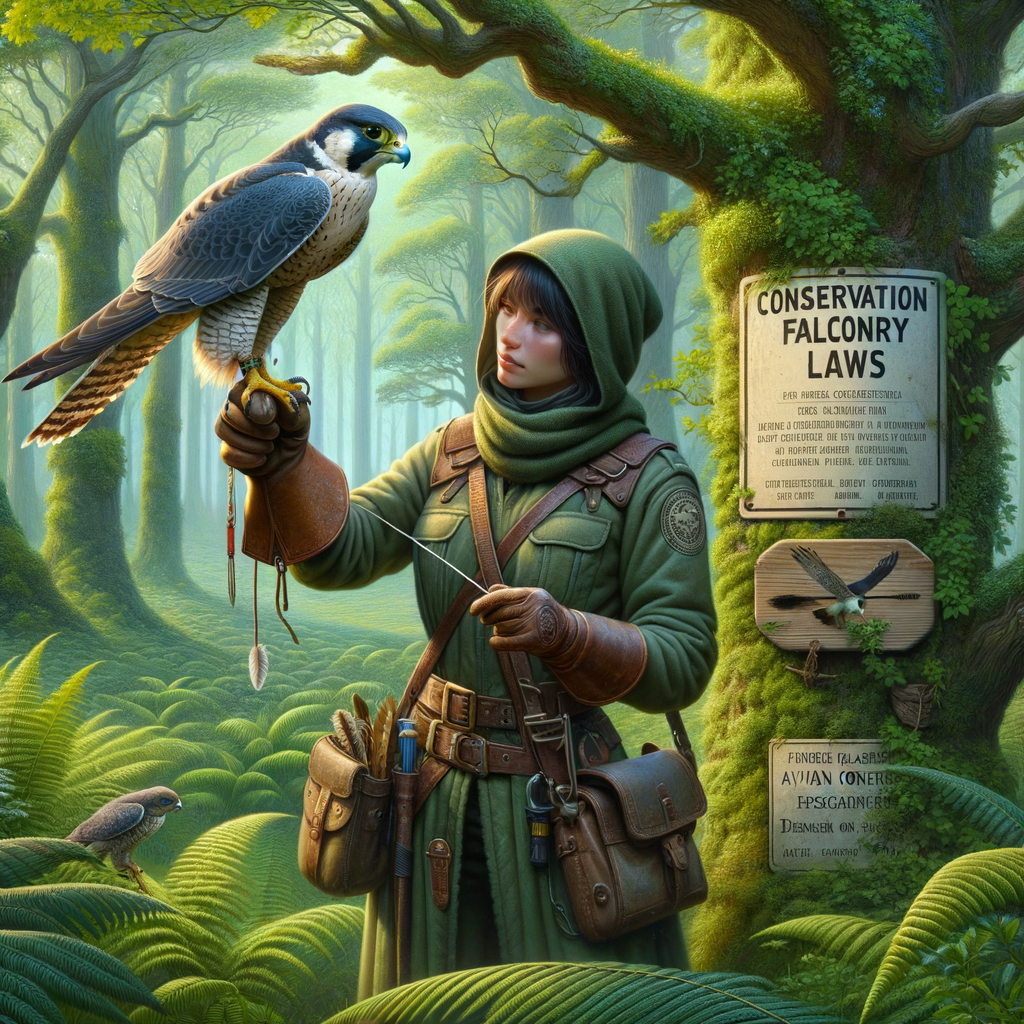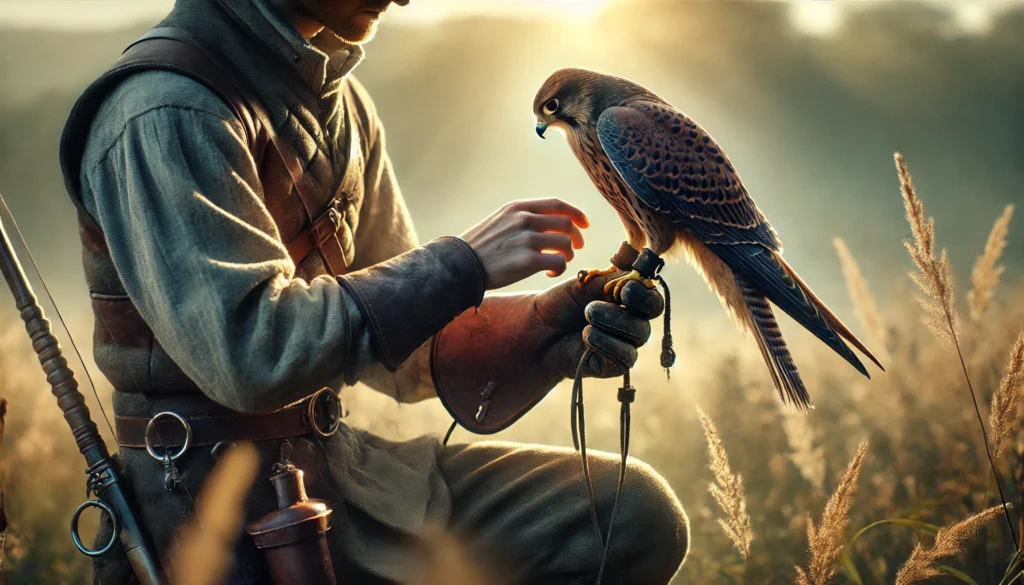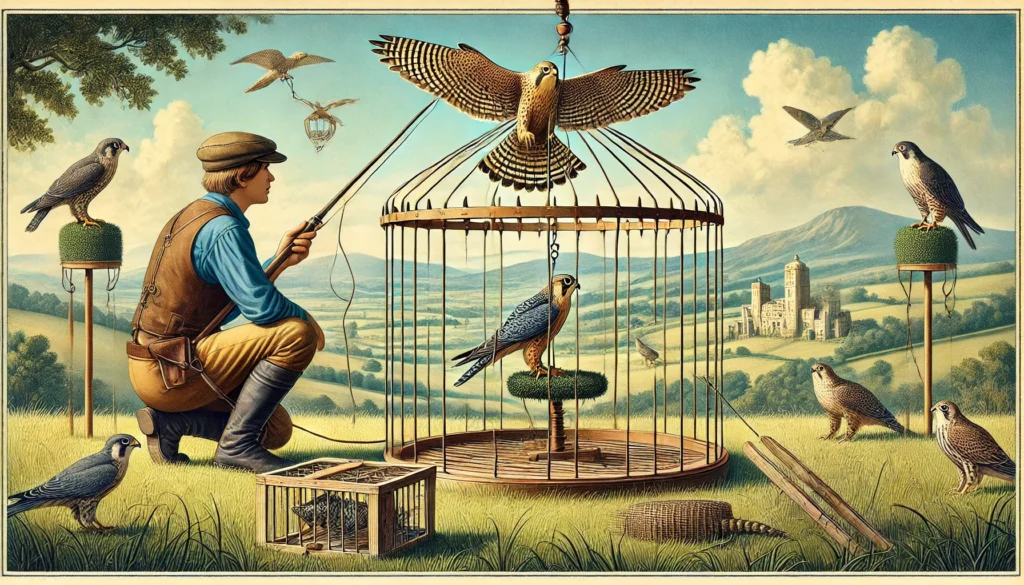Key Facts About Conservation and Falconry Laws
- Importance of Falconry: Falconry helps conserve birds of prey and teaches respect for wildlife.
- Legal Requirements: Aspiring falconers must follow specific laws to protect raptors and their habitats.
- Permits and Licenses: A falconer needs proper permits to legally practice falconry.
- Training and Exams: Falconers undergo rigorous training and must pass exams to ensure they have the necessary knowledge.
- Bird Protection Laws: It is important to understand laws that protect birds of prey, ensuring their safety and conservation.
- Sustainable Practice: Ethical falconry focuses on sustainable practices that balance human activities with nature conservation.
- Continuous Education: Falconers must stay updated with current laws and best practices to help conserve wildlife.
Unveiling Conservation Falconry Laws: An Adventure of Protection
Hello there, fellow bird enthusiasts! Welcome to an exciting journey into the world of conservation falconry laws with us at Learn Falconry. Imagine this: you’re exploring the lush, green hills of Ireland, maybe even chasing a pot of gold at the end of a rainbow. Now, think of those hills as our beautiful falcons, and their well-being as the treasure we are all keen to protect.
In this article, we’ll dive into the intricate laws that help us conserve these majestic creatures. You see, just like how the leprechauns need lush, untouched hills to thrive, falcons need a safe and regulated environment. These laws are the guardians of their world, ensuring they can soar high and free without the threat of extinction.
Stick with us as we unravel the mysteries and importance of these conservation laws. By the end of it, you’ll understand why they are as crucial to falcons as the rainbows and green pastures are to the legends of Ireland. Ready to embark on this tale of protection and conservation? Let’s dive in!
Understanding Conservation and Falconry Laws
Falconry is an ancient practice that involves hunting wild animals using trained birds of prey, such as falcons. It is not just a hobby but a way to connect with nature, and, importantly, to contribute to wildlife conservation. Today, there are various conservation laws, falconry conservation regulations, and legal conservation falconry practices that every falconer must adhere to in order to protect both the birds and the environment.
Conservation Laws in Falconry
Conservation laws are essential as they aim to protect wildlife and their habitats. For falconers, these laws ensure that the practice of falconry does not harm bird populations or their ecosystems. It’s important to know that these laws can vary greatly from one country to another, and even among regions within a country.
Falconers are required to follow specific rules, which may include obtaining permits, adhering to hunting seasons, and ensuring the well-being of the birds. These laws help conserve wild raptor populations and their natural habitats.
Falconry Conservation Regulations
Falconry conservation regulations are detailed rules that govern how falconry can be practiced in a sustainable and ethical manner. These regulations are designed to ensure that falconry contributes positively to wildlife conservation rather than posing any threat.
- Permits and Licensing: To legally practice falconry, falconers must obtain the necessary permits and licenses. These permits are part of broader conservation efforts to track and manage the impact on raptor populations.Read more about Falconry Licensing Requirements
- Hunting Seasons and Limits: Regulations may set specific hunting seasons and limits to avoid over-harvesting prey species. This ensures a balanced ecosystem where both prey and predator populations remain healthy.Explore Falconry Hunting Regulations
- Training and Equipment: The type of equipment used, such as hoods, gloves, and telemetry systems, is also regulated. Proper equipment is necessary for the safety of both the bird and the environment.Discover Types of Falconry Equipment
Legal Conservation Falconry Practices
Legal conservation falconry practices involve the responsible use of falcons in a way that supports conservation efforts. These practices are built around a framework of ethical standards and legal guidelines that falconers must follow:
- Captive Breeding Programs: Many falconers participate in captive breeding programs to help increase the population of endangered species before releasing them back into the wild. These programs are closely monitored to ensure genetic diversity and prevent negative impacts on wild populations.Learn about Falconry Breeding Programs
- Habitat Restoration: Falconers often engage in habitat restoration projects. For instance, they might help create or maintain nesting sites for wild raptors. This boosts the chances for successful breeding in natural habitats.Understand Habitat Restoration Efforts
- Educational Outreach: Legal conservation falconry also includes educating the public on the importance of raptors and how falconry can aid conservation. By sharing knowledge, falconers help foster a greater appreciation for these magnificent birds and the ecosystems they inhabit.Join Conservation Education Programs
- Rehabilitation: Some falconers work with injured or sick birds, helping them recover and, if possible, return to the wild. This aspect of falconry underscores the deep commitment falconers have to the welfare of these birds.Explore Falconry for Rehabilitation
Incorporating these practices ensures that falconry remains a sustainable tradition that contributes to the broader goals of wildlife conservation. To delve deeper into the history and techniques of falconry, including its cultural significance and modern applications, visit our extensive library of resources available on the Learn Falconry website.
Stay informed and involved with conservation efforts to make sure falconry continues to be a positive force in the natural world!
History of Falconry Falconry Equipment Training a Falcon Species of Falcons Falconry Techniques Legal Aspects of Falconry Falcon Health & Nutrition
Understanding Conservation Falconry Laws in 2024
Falconry, the practice of training birds of prey to hunt in cooperation with humans, is not just a remarkable sport but also a critical aspect of raptor conservation. Laws and regulations surrounding falconry have evolved to ensure the sustainable management and protection of these majestic birds. Let’s delve into significant aspects of conservation falconry laws in various regions.
Falconry License and Requirements
New York State
- Falconry License: This license empowers residents to participate in falconry, including hunting small game with trained raptors. It allows holders to obtain, buy, sell, barter, possess, and train raptors.
- Apprentice License: Aspiring falconers must pass an examination with a score of 80% or higher. They also need a current year hunting license and must complete a Falconry License Application with all required documents.
- General and Master Licenses: These advanced licenses require specific experience and training under sponsorship from a master or general falconer, along with detailed documentation and inspections.
Virginia
- Apprentice Falconers: Must be 12 years or older, complete a two-year apprenticeship with a Master or General Falconer, and pass a 105-question exam with a score of 80% or higher.
- General Falconers: Need at least two years of experience as an apprentice and must submit a written summary detailing their experience maintaining raptors.
- Master Falconers: Require at least five years of experience as a general falconer. Applicants need written recommendations and approval from three master falconers and the NYS Falconry Advisory Board.
Michigan
- Falconry Permit: Requires passing a supervised examination approved by the U.S. Fish and Wildlife Service and administered by the Michigan Department of Natural Resources, with a minimum score of 80%.
- Resident and Non-Resident Falconers: Both must obtain a falconry permit from the wildlife division permit specialist, with specific requirements for non-residents.
State Regulations
Michigan Adjustments
- The Department of Natural Resources suggests adding merlins to the list of species that can be taken under a general raptor capture permit while removing American goshawks from the limited raptor capture permit list.
Oregon Management
- The Oregon Department of Fish and Wildlife collaborates with the U.S. Fish and Wildlife Service to manage falconry regulations, ensuring compliance with federal standards.
Federal Regulations
- The U.S. Fish and Wildlife Service (USFWS) oversees management of falconry regulations, making sure state regulations align with federal standards.
Conservation Efforts
- Raptor Conservation: Falconry is a regulated sport that aids in conserving raptor populations by offering young raptors safer opportunities to gain experience and boost their survival rates.
- Release of Raptors: Falconers often release birds back into the wild after a year of training and hunting, thus contributing to the species’ conservation.
Licensing and Permits
New York State Renewals
- Falconry licenses, issued by the Department of Environmental Conservation (DEC), offer a 5-year expiration cycle. Renewal forms are sent by mail before expiration, and annual reports are mandatory.
Examinations and Training
Michigan Examination
- Falconers must pass a supervised exam approved by the USFWS to become apprentices.
New York State Falconry Exam
- Annual falconry exams have a 2-hour time limit and no fee. Successful candidates receive a license application form along with further instructions.
Group and Organization Involvement
- The American Falconry Conservancy (AFC) works tirelessly to protect and preserve falconry, advocating for the rights of falconers and promoting responsible ecological and ethical practices.
Summary Tables
Licensing Requirements by State
| State | License Type | Exam Requirement | Experience Requirement | Additional Documents Required |
|---|---|---|---|---|
| New York | Apprentice | 80%+ on Exam | – | Current year hunting license, completed License Application |
| New York | General & Master | 80%+ on Exam | Years under master/general falconer | Detailed documentation and inspections |
| Virginia | Apprentice | 80%+ on Exam | Two years apprenticeship with Master or General Falconer | – |
| Virginia | General | – | Two years as an apprentice | Written summary of raptor maintenance experience |
| Virginia | Master | – | Five years as a general falconer | Recommendations and approval from three master falconers and the NYS Falconry Advisory Board |
| Michigan | Falconry Permit | 80%+ on Exam | – | Specific requirements for non-residents |
Conservation Tables
| Conservation Aspect | Description |
|---|---|
| Raptor Conservation | Regulation ensures young raptors gain experience and boosts survival rates. |
| Release of Raptors | Birds are often released back into the wild after training, aiding species’ conservation. |
Through these rigorous regulations and passionate conservation efforts, falconry continues to thrive as a sport and vital conservation mechanism in 2024.
Understanding Falconry Conservation Laws in 2024
Falconry, the ancient sport of hunting with trained birds of prey, is closely tied to conservation efforts. Various regulations help ensure that the practice supports the long-term survival and health of raptor populations. In 2024, different states like New York, Virginia, and Michigan have specific requirements for falconry licenses, which include exams, apprenticeships, and experience documentation.
Key Points:
- Licensing and Requirements: States like New York, Virginia, and Michigan have structured programs for different levels of falconers, emphasizing rigorous examination and hands-on training.
- Conservation Efforts: Falconry promotes raptor conservation by providing young raptors with survival skills and releasing them back into the wild, making an important contribution to maintaining raptor species.
- Federal and State Cooperation: Regulations are managed both at the state and federal levels to ensure compliance and responsibly balanced practices.
Takeaway:
Falconry is not just a sport but a vital part of wildlife conservation. By following detailed laws and regulations, falconers contribute significantly to the preservation and ethical treatment of raptors, ensuring these majestic birds thrive for generations to come.



